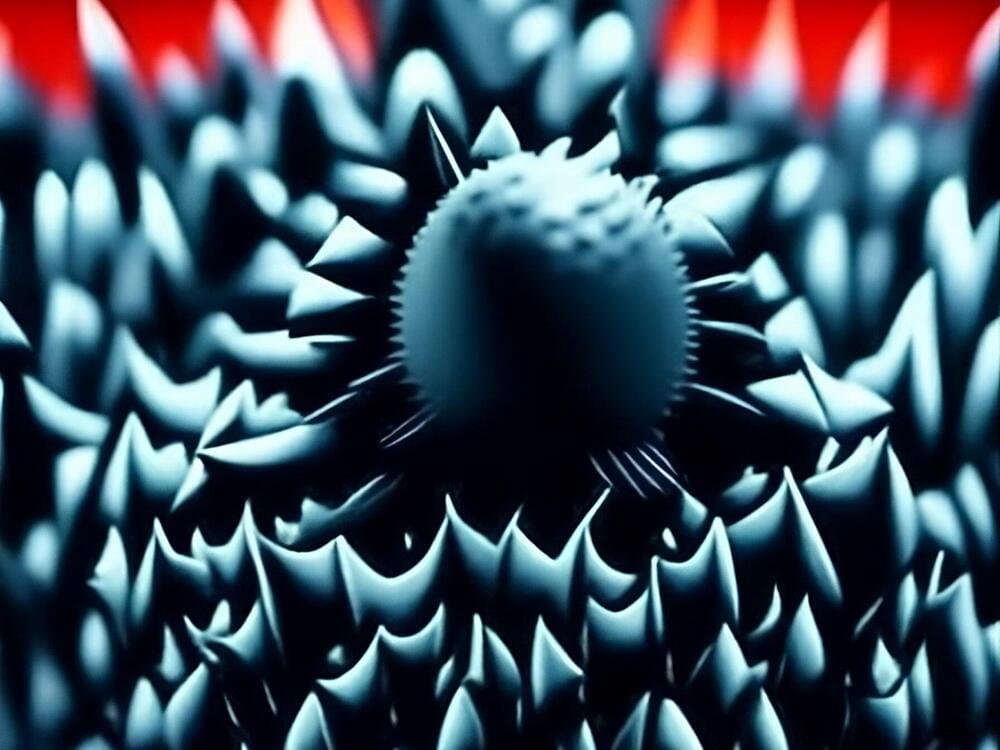A team of researchers from the URV and the RMIT University (Australia) has designed and manufactured a surface that uses mechanical means to mitigate the infectious potential of viruses. Made of silicon, the artificial surface consists of a series of tiny spikes that damage the structure of viruses when they come into contact with it. The work is published in the journal ACS Nano.
The research has revealed how these processes work and that they are 96% effective. Using this technology in environments in which there is potentially dangerous biological material would make laboratories easier to control and safer for the professionals who work there.
Spike the viruses to kill them. This seemingly unsophisticated concept requires considerable technical expertise and has one great advantage: a high virucidal potential that does not require the use of chemicals. The process of making the virucidal surfaces starts with a smooth metal plate, which is bombarded with ions to strategically remove material.










Comments are closed.